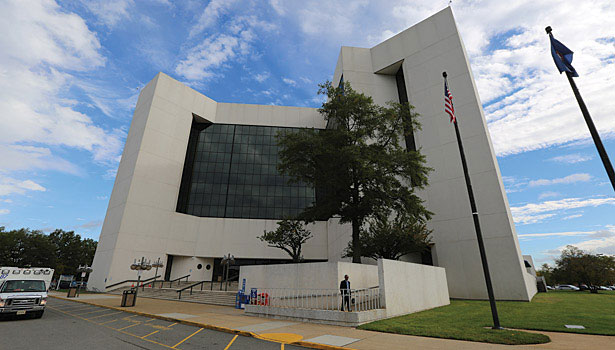Leaders at the Virginia Department of Motor Vehicles are expecting recent upgrades to the state DMV building in Richmond, VA, to reduce energy consumption by 36% and save $284,000 a year.
The majority of the upgrades to the 310,650-sq-ft, nine-story facility were completed to address aging and outdated infrastructure. The project supports Virginia Governor Terry McAuliffe’s recently released Energy Plan and his new Executive Order on reducing energy consumption in state buildings.
The building upgrades also are helping to improve the comfort of DMV visitors and employees while reducing the state’s environmental impact. The improvements address building infrastructure systems approaching the end of their useful life.
In recognition of the Virginia DMV’s commitment to energy and operational efficiency and sustainability, Trane presented the DMV with its Energy Efficiency Leader Award, which recognizes the agency as a national leader in reducing its environmental impact.
“These improvements address building systems that were at the end of their useful life while providing significant cost reductions for the state,” said Richard D. Holcomb, Virginia DMV commissioner. “The upgrades enable DMV to exceed state requirements for energy efficiency while creating a more comfortable and productive environment for customers and employees. The upgrades so significantly reduced our energy costs that our utility company actually called us to see if we had shut down a third of our building.”
DMV funded most of the improvements with a performance contract made possible through a program managed by the Virginia Department of Mines, Minerals and Energy. DMV also worked closely with the Department of General Services and the Department of the Treasury for the effort. The performance contract allowed DMV to use future energy and operational savings to help finance the infrastructure improvements up front. Performance contracting is a funding option that provides measurable business results to support strategic business objectives.
Prior to completing the upgrades, DMV conducted a detailed energy audit of the building which identified a list of potential energy conservation measures. Building information modeling was then used to evaluate potential solutions and their benefits. DMV then selected the solutions that best met its needs based on energy savings and other factors.
Upgrades to the DMV building included replacing all interior and exterior lighting systems with highly-efficient illumination. Water retrofits were completed throughout the building to increase energy efficiency and conserve water. Chilled water system upgrades included installing two new centrifugal chillers, variable flow drives, and deduct meters, which help reduce sewer fees for cooling tower water.
The project team replaced outdated pneumatic building controls to allow for chiller plant optimization and control of the heating plant, lighting system, and other solutions throughout the building. The team also replaced outdated windows with highly efficient windows for increased energy efficiency for the building.
DMV signed a one-year maintenance contract to help ensure that new systems continue to run optimally. The agency expects to complete a second phase of improvements in March 2015 which will include replacing the original elevators with high-efficiency elevators.


